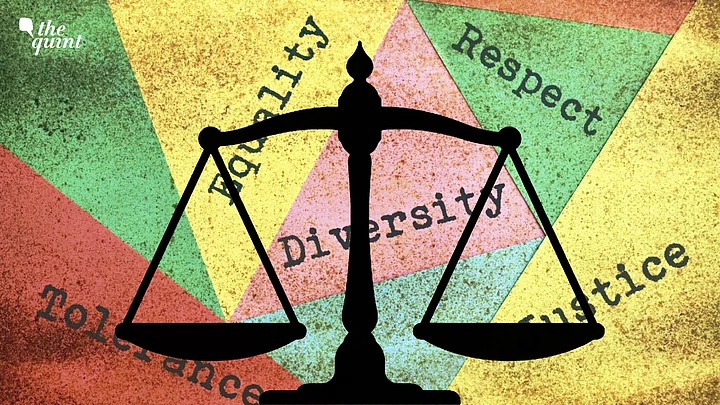India’s celebrated "Unity in diversity” may be in peril once again. The Hindu nationalist Bharatiya Janata Party (BJP) government has announced its intention to pass a Uniform Civil Code (UCC) in the upcoming session of the Parliament which would establish for all Indians– regardless of their ethnicity or religion– a single set of regulations for personal matters including marriage, divorce, succession and inheritance.
The Modi government argues that a UCC is desirable for the nation’s unity, uniformity of laws, people’s equality, and women’s rights. However, the Opposition fears their majoritarian intent.
India’s leading Muslim bodies, for example, have declared that a UCC is "against the Constitution, freedom, and diversity." 1. The tribal groups in Jharkhand fear that it would dilute their customary laws. 2. Even Hindu outfits, such as the Shiv Sena and AIADMK, have stood in opposition, arguing that a UCC would limit religious freedoms and polarise the country.
But given India’s majoritarian parliamentary system, the government has the wherewithal to enact any laws it wishes. It argues that a UCC is already in the Constitution and points to its mention as one of the Directive Principles.
Against Devising UCC as a Single Law
Our founders made UCC a Directive Principle rather than a justiciable clause in the Constitution because there was no consensus. "The reason behind these actions was not, as it might appear at first, the wish to avoid a clash with Hindu orthodoxy, but a sensitivity, particularly on Nehru’s part, to the fears of the Muslims and the Sikhs,” wrote Granville Austin in his book about the making of India’s Constitution.
Nehru later realised just how difficult implementing a UCC was when he tried to enact the Hindu Code Bill in 1951. President Rajendra Prasad opposed it vehemently, calling it "highly discriminatory,” and the country avoided a constitutional crisis only when Nehru agreed to postpone a decision. This angered his Law Minister, BR Ambedkar, who resigned over the issue.
The Modi government could act more wisely and avoid stepping on religious freedoms if it reframes UCC not as a single law, borrowing an idea from America’s Constitution. A consensual way to implement a UCC would be to follow the American principles of national supremacy, local independence, and the separation of Church and State. This would provide the best combination of national uniformity and local ethnic expression. It would also strengthen India’s religious pluralism and curb the communalism of any religion or state.
Inspiration From the US Constitution on Independent Functioning
National Supremacy allows the Centre to supersede laws passed by the states. The US Constitution has a "national supremacy clause” (Article VI, clause 2) in India, the same notion exists, as a precedent set by the Supreme Court.
If India strengthens this provision, perhaps by a constitutional amendment, it would allow federal laws with broad national consensus to be enforced uniformly throughout the country. The Modi government could, thus, have a "One Nation-One Law” on the most important matters in a civil code, such as equality, women’s rights, non-discrimination, and religious conversion. As the country finds more consensus, it could attain more progress in uniformity and religious reform.
Local Independence is also already a feature of India’s federalism, as it is in the United States, but there is a difference. Indian states are not as independent in their ability to pass laws, due to our inherently unitary parliamentary system. But if they were allowed more independence, from both party bosses and the Centre, they could enact civil laws that reflect local ethnic and cultural feelings.
This could cover matters such as customs, rituals, and ceremonies; registrations of birth, death, marriages, and divorces; requirements for separation, divorce, alimony, and remarriage; rules for succession and inheritance, and other provisions not covered by the national laws. Already the Modi government seems to be taking this approach—Uttarakhand is reportedly creating a UCC of its own—but a more concerted and less ideological national effort is needed.
Solutions for UCC in India
The third and the most important requirement for achieving religious equality and civic harmony is to bar central and state governments from engaging in any religious activity. This is where India fails most egregiously. Our Constitution lacks the equivalent of America’s First Amendment, which prohibits the creation of any law “respecting an establishment of religion.”
Our Constitution aims instead at pluralism, which in a country with one dominant religion, ends up as sectarianism. If we followed this three-pronged approach, India could begin to implement social reform which has been a noble Directive Principle dream for 75 years. Some consensus would emerge now and more would build over time. But if the Modi government’s true intention is simply to arouse Hindu nationalism to help them win the upcoming election, a UCC based on real consensus will remain just a noble dream.
(The author is Founder and CEO of the Divya Himachal group and author of ‘Why India Needs the Presidential System’. He can be reached @BhanuDhamija. This is a personal blog and the views expressed above are the author’s own. The Quint neither endorses nor is responsible for the same.)
